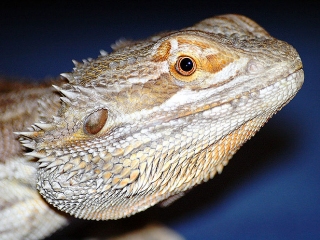Caresheet for Bearded Dragon (Pogona vitticeps
| Kingdom: | Animalia |
| Phylum: | Chordata |
| Class: | Reptilia |
| Order: | Squamata |
| Family: | Agamidae |
| Genus: | Pogona |
| Species: | P. vitticeps |

| Kingdom: | Animalia |
| Phylum: | Chordata |
| Class: | Reptilia |
| Order: | Squamata |
| Family: | Agamidae |
| Genus: | Pogona |
| Species: | P. vitticeps |

ScalesAndFins.com is provided as a free pet care resource. Whilst we endeavour to ensure that all the information is up to date and correct, any reliance you place on such information is strictly at your own risk. If in any doubt you should always consult a suitable veterinarian. If you see what you consider a potential error, then please contact us at info@scalesandfins.com.
These pages have been designed to be printed as basic care sheets and reference. You are free (in fact encouraged) to distribute them as you see fit providing that no alterations are made and that this section and our sponsor's are included. Distribution in electronic form is strictly forbidden.